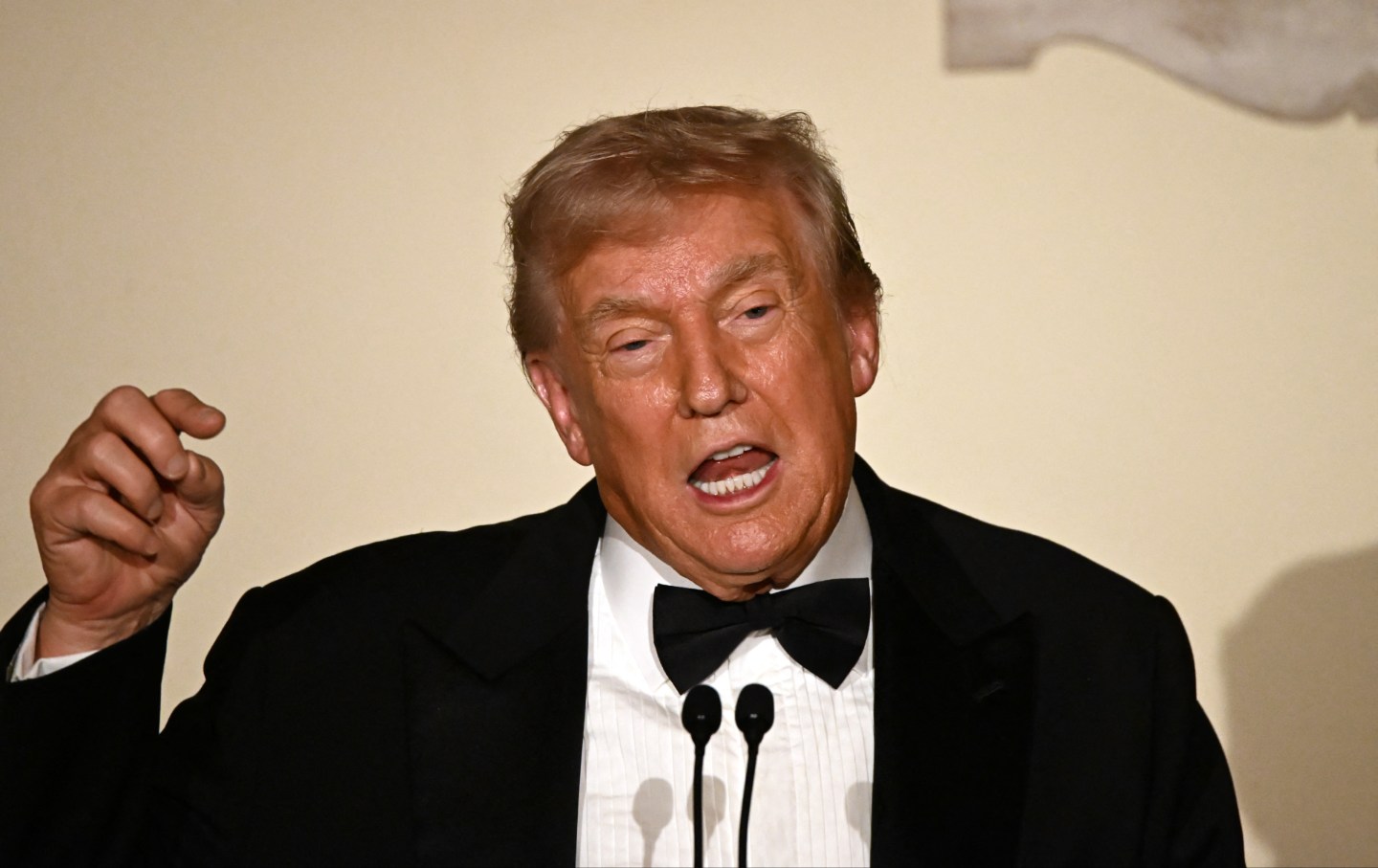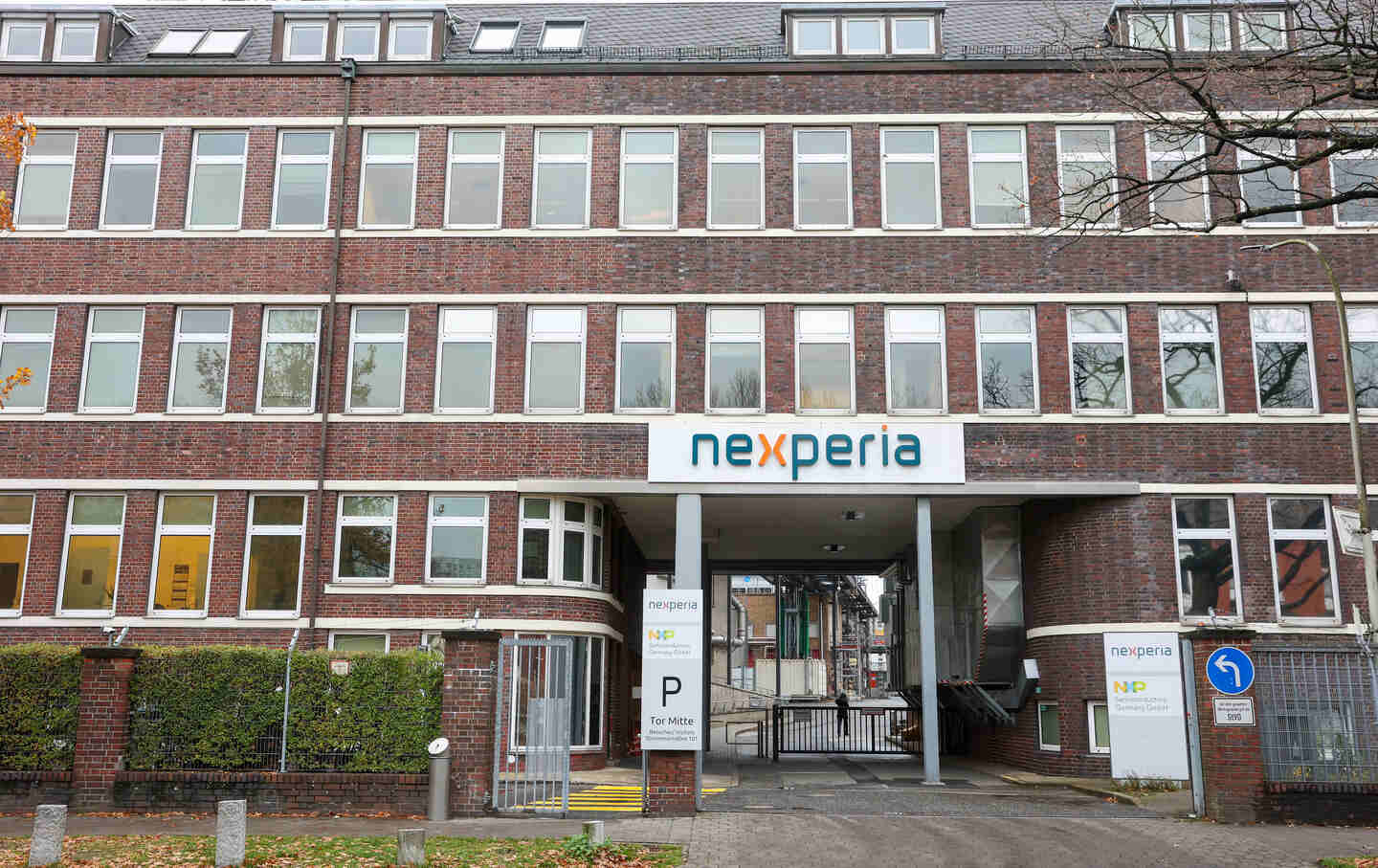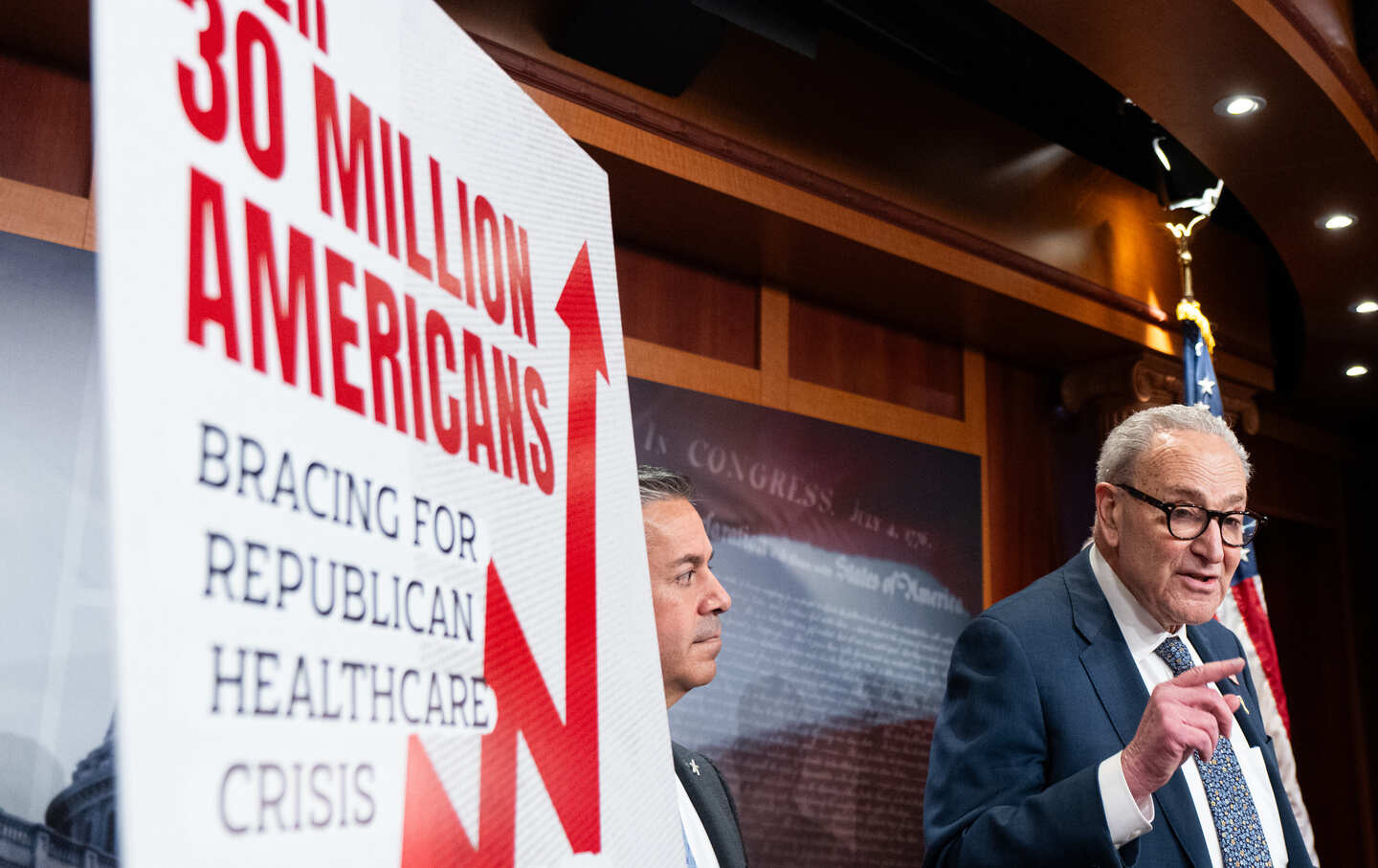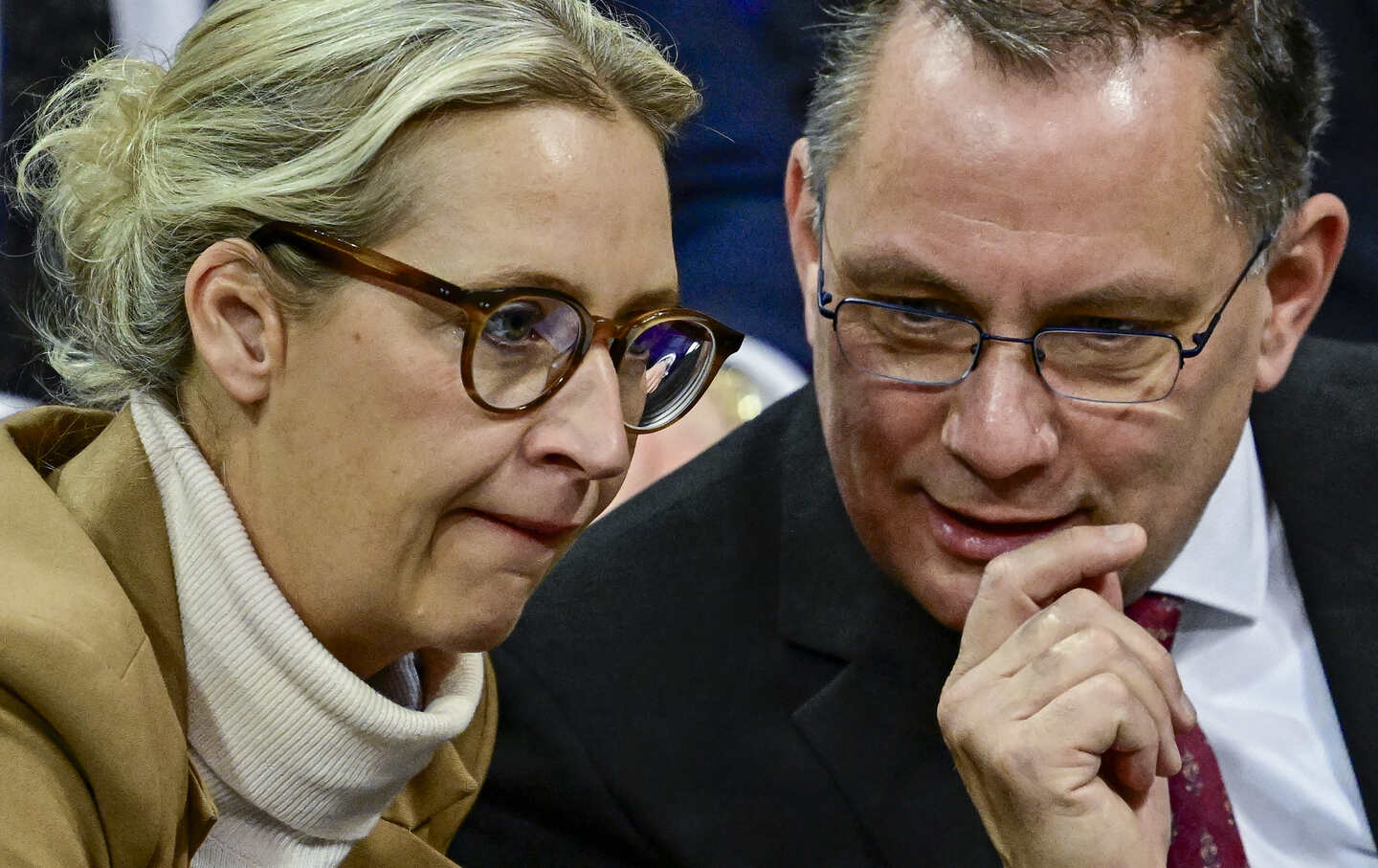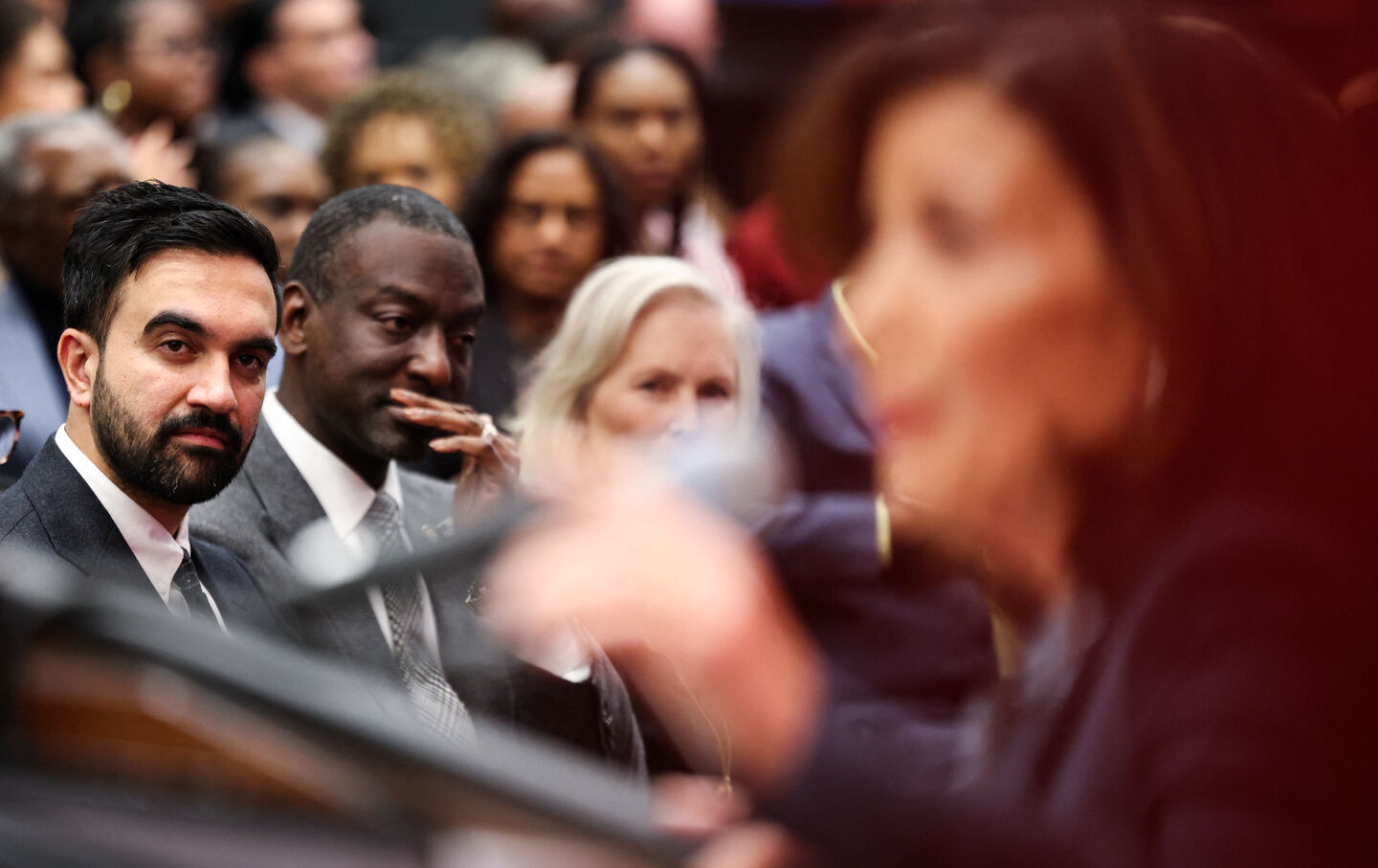The Making of Donald Trump
On this episode of The Time of Monsters, David Klion on the new Trump biopic, The Apprentice.

Here's where to find podcasts from The Nation. Political talk without the boring parts, featuring the writers, activists and artists who shape the news, from a progressive perspective.
On this episode of The Time of Monsters, Jeet Heer is joined by David Klion to discuss 'The Apprentice' — a movie about Roy Cohn’s mentoring of a future president.
Our Sponsors:
* Check out Avocado Green Mattress: https://avocadogreenmattress.com
Advertising Inquiries: https://redcircle.com/brands
Privacy & Opt-Out: https://redcircle.com/privacy

Donald Trump is such a clearly defined figure—a walking, talking political cartoon—that it’s hard to imagine when he was someone different. Ali Abbasi’s new film, The Apprentice, gives us a Trump we’re not used to seeing, a young man who was unsure of himself and found his path thanks to the mentoring of Roy Cohn, the notoriously crooked lawyer and political fixer. David Klion, a frequent guest of the podcast, reviewed the movie for The Nation. While David liked the movie more than I did, we both agreed it is well worth watching, with superb performances and a vivid evocation of the New York of the 1970s and ’80s. In our talk, we discuss what the movie says about Trump’s origins and also the Trump fatigue that has hurt the film at the box-office.

Here's where to find podcasts from The Nation. Political talk without the boring parts, featuring the writers, activists and artists who shape the news, from a progressive perspective.
The Trump administration has released a new National Security Strategy that is a marked shift
not only from earlier administrations but also Trump’s first term in office. While the new policy
statement eschews the goal of global hegemony, it promotes culture war in Europe by
promising support of anti-immigration political parties, economic rivalry in Asia with China, and
a renewal of US military hegemony in the Western hemisphere. To survey this document and
Trump’s often contradictory foreign policy, I spoke to frequent guest of the show Stephen
Wertheim who is American Statecraft senior fellow, Carnegie Endowment for International
Peace.
Our Sponsors:
* Check out Avocado Green Mattress: https://avocadogreenmattress.com
Advertising Inquiries: https://redcircle.com/brands
Privacy & Opt-Out: https://redcircle.com/privacy
Subscribe to The Nation to Support all of our podcasts
Disobey authoritarians, support The Nation
Over the past year you’ve read Nation writers like Elie Mystal, Kaveh Akbar, John Nichols, Joan Walsh, Bryce Covert, Dave Zirin, Jeet Heer, Michael T. Klare, Katha Pollitt, Amy Littlefield, Gregg Gonsalves, and Sasha Abramsky take on the Trump family’s corruption, set the record straight about Robert F. Kennedy Jr.’s catastrophic Make America Healthy Again movement, survey the fallout and human cost of the DOGE wrecking ball, anticipate the Supreme Court’s dangerous antidemocratic rulings, and amplify successful tactics of resistance on the streets and in Congress.
We publish these stories because when members of our communities are being abducted, household debt is climbing, and AI data centers are causing water and electricity shortages, we have a duty as journalists to do all we can to inform the public.
In 2026, our aim is to do more than ever before—but we need your support to make that happen.
Through December 31, a generous donor will match all donations up to $75,000. That means that your contribution will be doubled, dollar for dollar. If we hit the full match, we’ll be starting 2026 with $150,000 to invest in the stories that impact real people’s lives—the kinds of stories that billionaire-owned, corporate-backed outlets aren’t covering.
With your support, our team will publish major stories that the president and his allies won’t want you to read. We’ll cover the emerging military-tech industrial complex and matters of war, peace, and surveillance, as well as the affordability crisis, hunger, housing, healthcare, the environment, attacks on reproductive rights, and much more. At the same time, we’ll imagine alternatives to Trumpian rule and uplift efforts to create a better world, here and now.
While your gift has twice the impact, I’m asking you to support The Nation with a donation today. You’ll empower the journalists, editors, and fact-checkers best equipped to hold this authoritarian administration to account.
I hope you won’t miss this moment—donate to The Nation today.
Onward,
Katrina vanden Heuvel
Editor and publisher, The Nation

